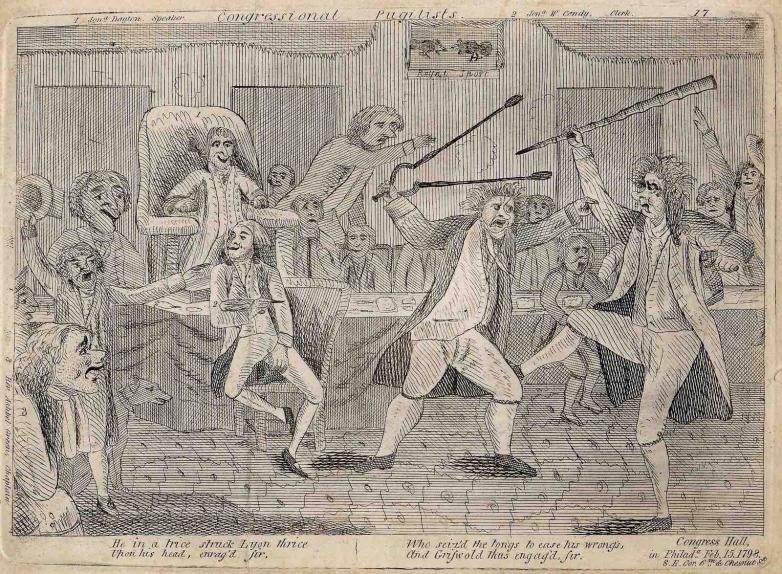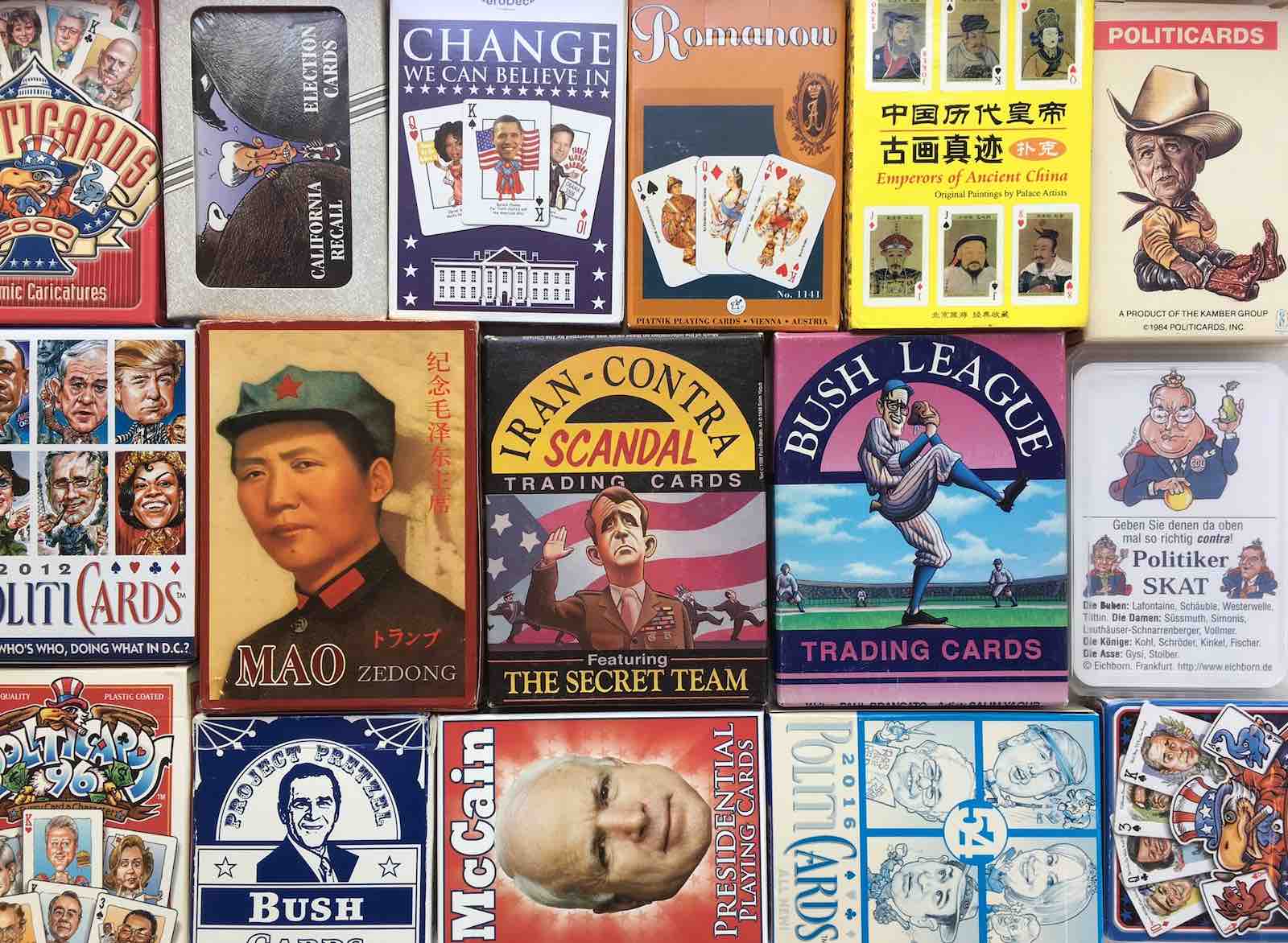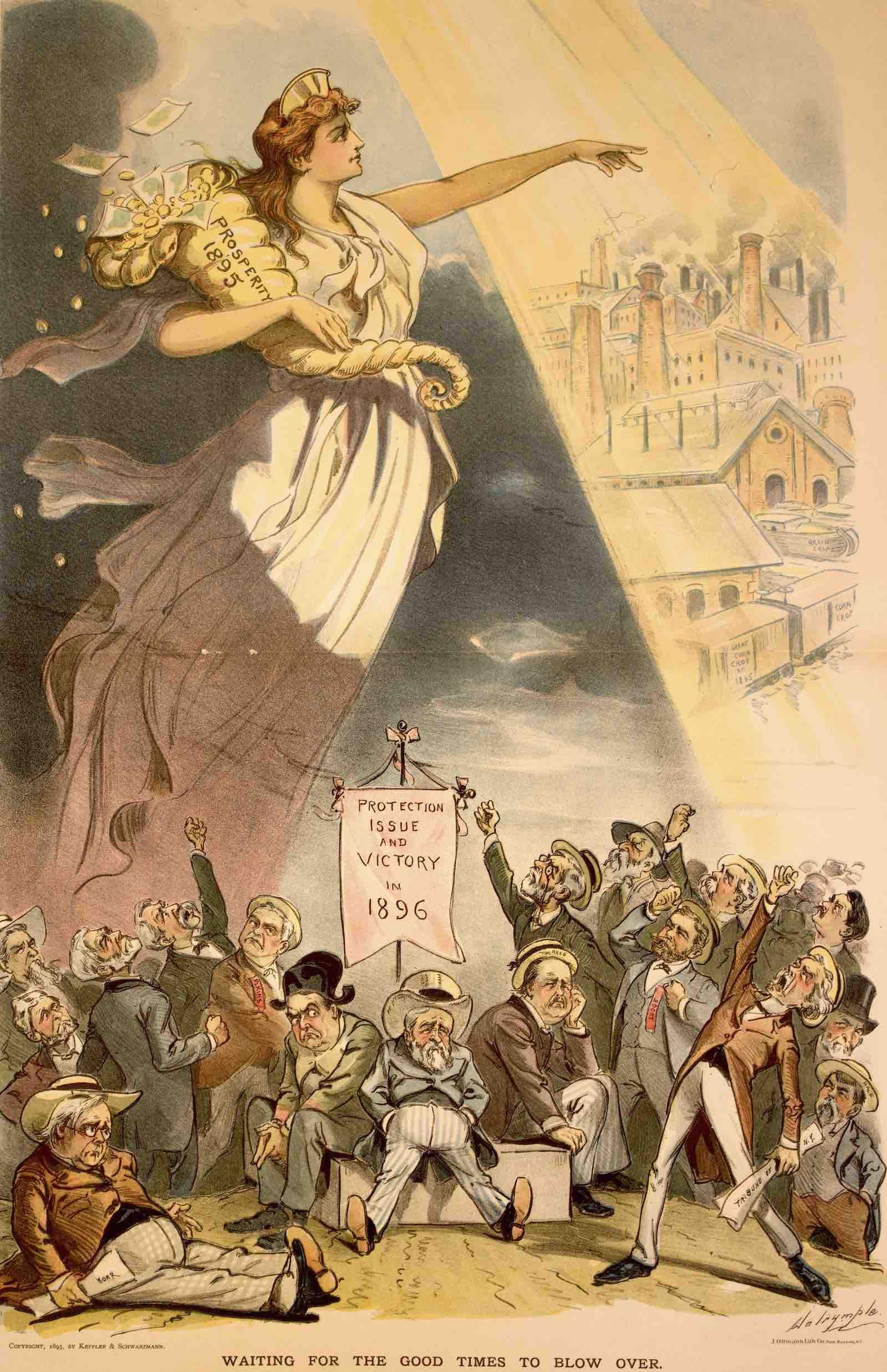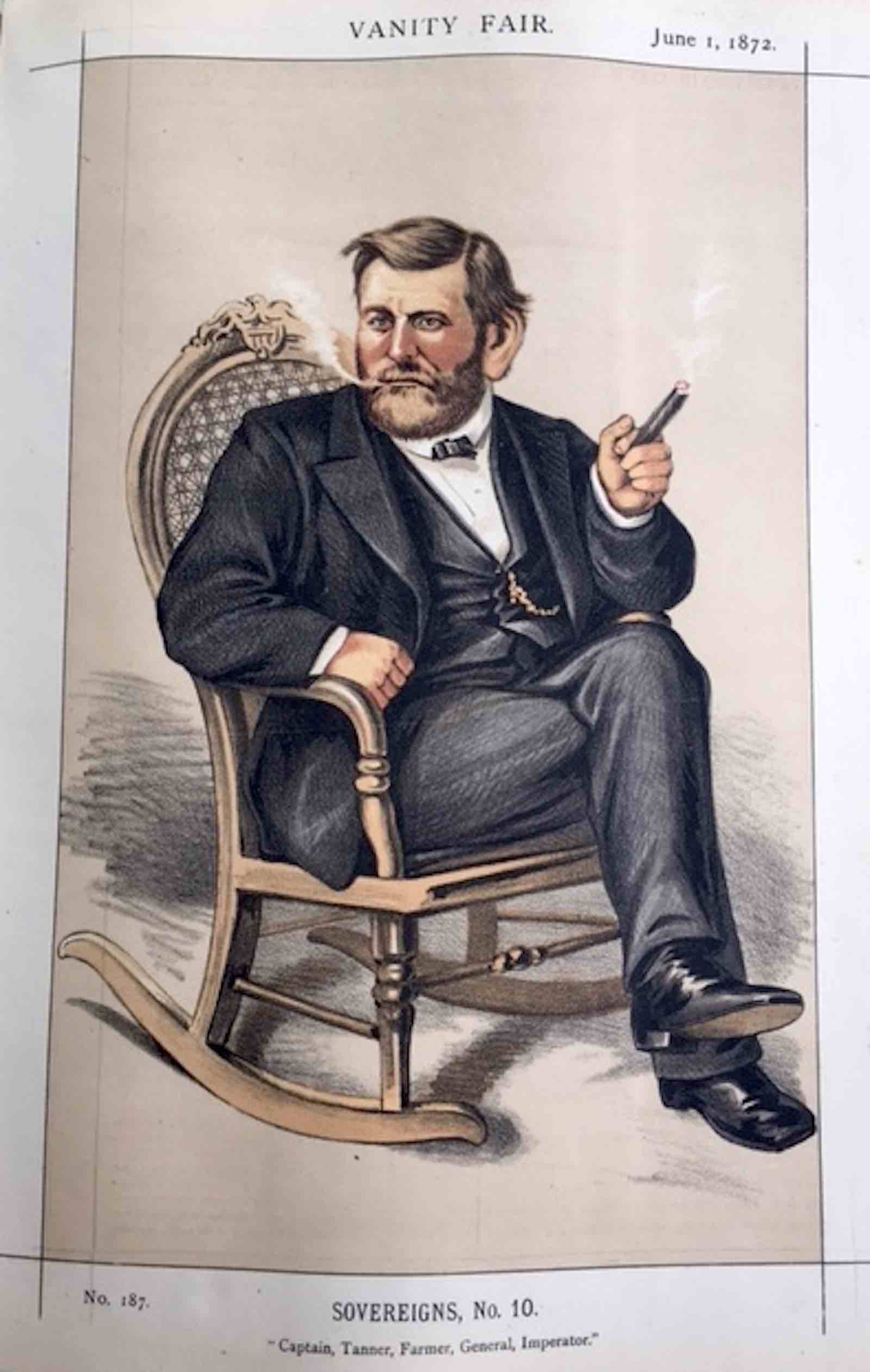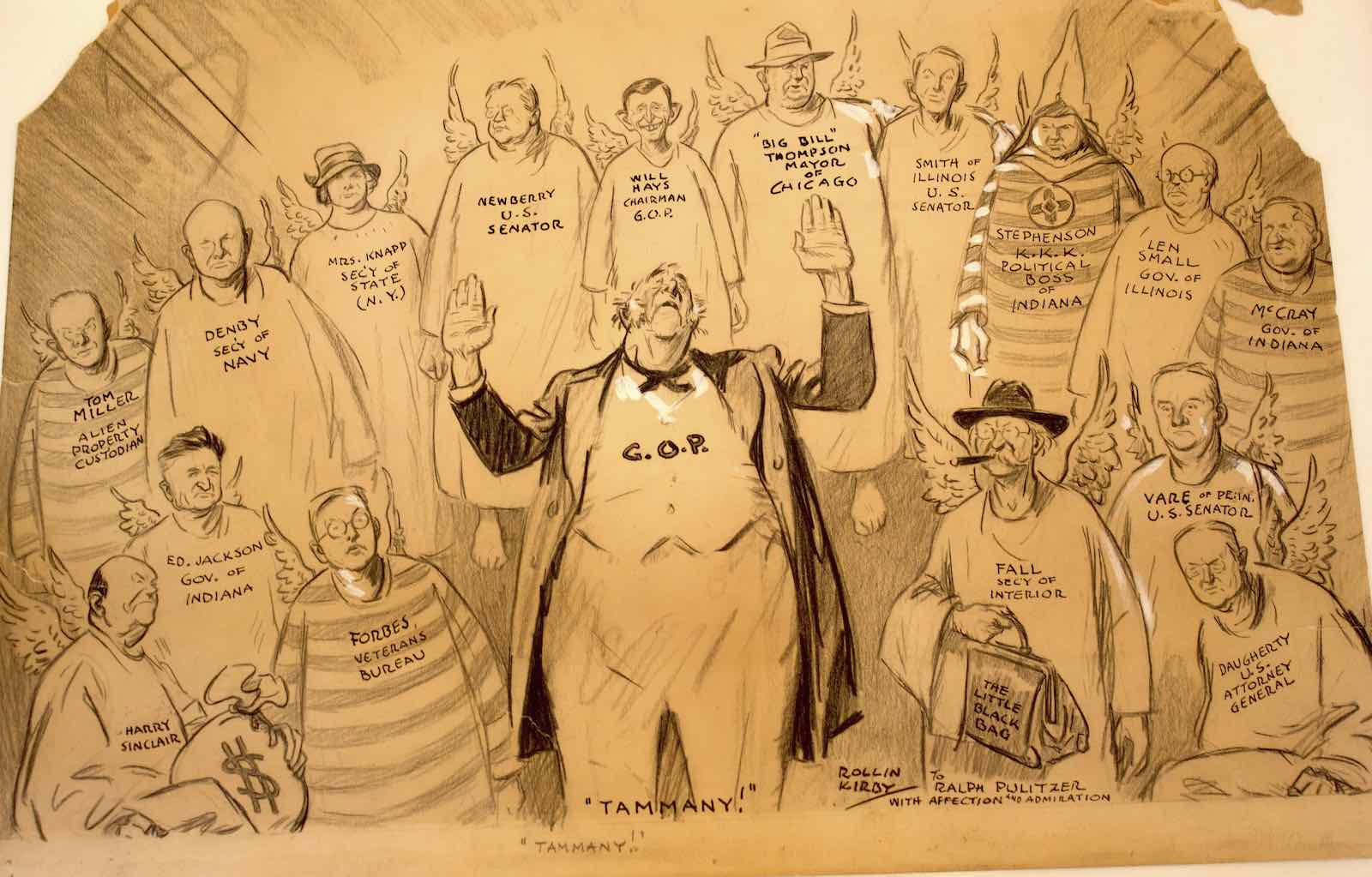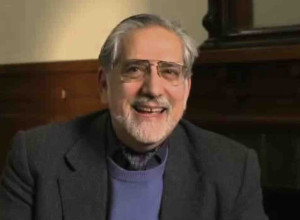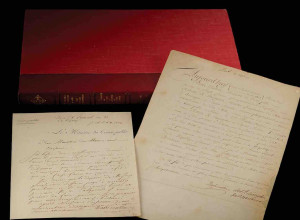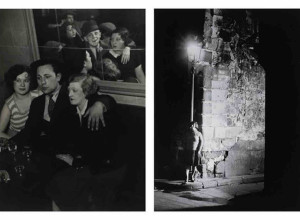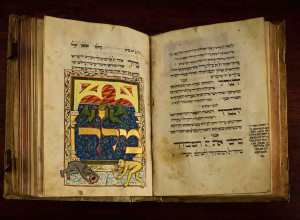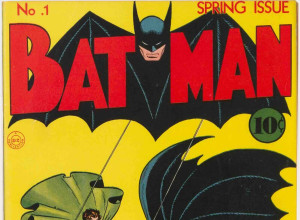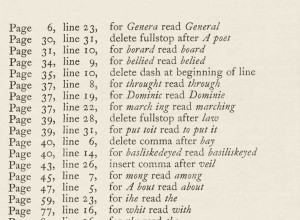As the subject matter for academic courses, cartoons can challenge students to decode complex meanings at the intersection of visual and verbal languages. The materials invite scholars to draw insights from multiple academic disciplines, including political science, history, art history, communications and information studies.
“Cartoons provide access for students to the attitudes of reading publics in times past, offering nuanced expressions of ideology and sentiment in hybrids of image and text,” said Christopher Gilman, the Library’s digital curriculum program coordinator.
Gilman will collaborate with UCLA faculty from various disciplines to develop and teach undergraduate classes and workshops based on the collection, digitize some items from the archive for use in other teaching contexts, and publish UCLA courses, modules and lessons in Bruin Learn, UCLA’s online learning management system.
One of the Kahn collection’s particular strengths is its caricatures of American presidential candidates from the elections of 1828 to 2020, with an emphasis on the period between 1840 and 1908. One gem is the first known caricature of Abraham Lincoln in print, which was published in the journal Momus less than a week after Lincoln was nominated as the Republican candidate for president on May 18, 1860.
The collection includes international satire publications from Japan, the U.K., India and Mexico, and also features work from nearly 200 unique American newspapers and magazine titles, including early American political cartoon journals like Scraps (circa 1837–1849), Yankee Notions (1852–1864), The Light (1889–1891) and Puck (1876–1918). Puck, an influential satire magazine, was one of Kahn’s early inspirations; he began collecting political cartoons 40 years ago after UCLA professor D.B. Hardeman pointed out that a cartoon by Bernhard Gillam that appeared in Puck helped swing the 1884 presidential election for Grover Cleveland.
Numerous top political cartoon artists are represented in the collection; among them is Rollin Kirby, who received a 1929 Pulitzer Prize for an illustration satirizing New York’s infamous Tammany Hall political machine, the original of which is in the collection.
Researchers will also have access to extensive or entire runs of numerous 19th and early 20th century American periodicals, including Harper’s Weekly (1857–1888), the Civil War era of Vanity Fair (1860–1863), Life (1883–1936), Saturday Globe (1898–1907) and Cartoons magazine (1912–1921).
Also included are international publications, such as extensive runs of the British journals Punch (circa 1841–1940), Judy (1867–1894) and Vanity Fair (1868–1914), as well as the German magazine Simplicissimus (1896–1967), the French journal La Caricature (1830–1831), and The Delhi Sketchbook (1855), published in India, and El Ahuizote: Semanario Político de Caricaturas (1911 to 1913), a weekly political satire magazine published in Mexico City during the Mexican Revolution.
While the collection’s focus is primarily political, there is also a wealth of materials depicting figures from business and industry, the performing arts - including a cartoon of the French actor Sarah Bernhardt - and literature.
The materials, stewarded by UCLA Library Special Collections, will be available to students, researchers and instructors beginning during the 2024–25 academic year.

